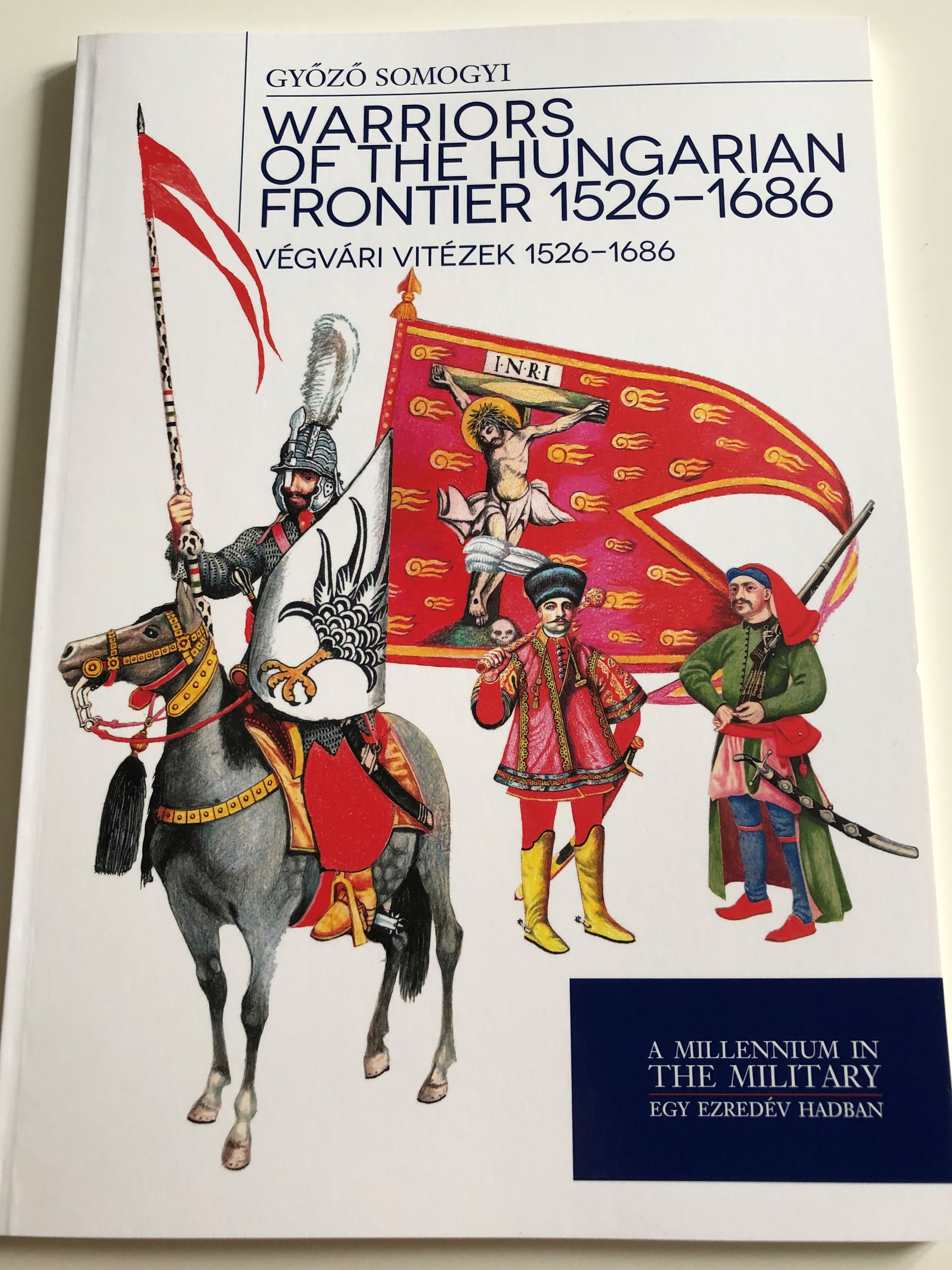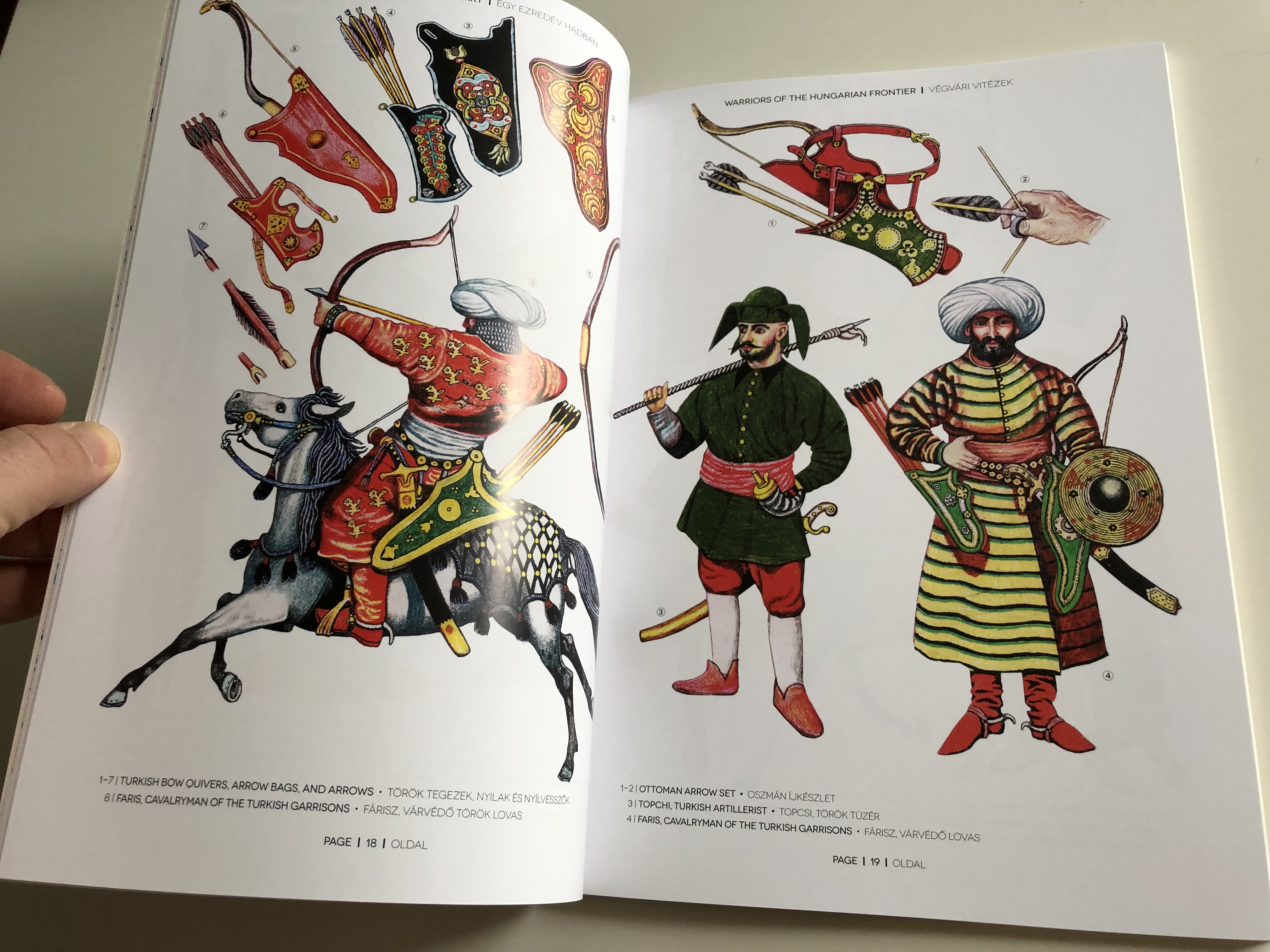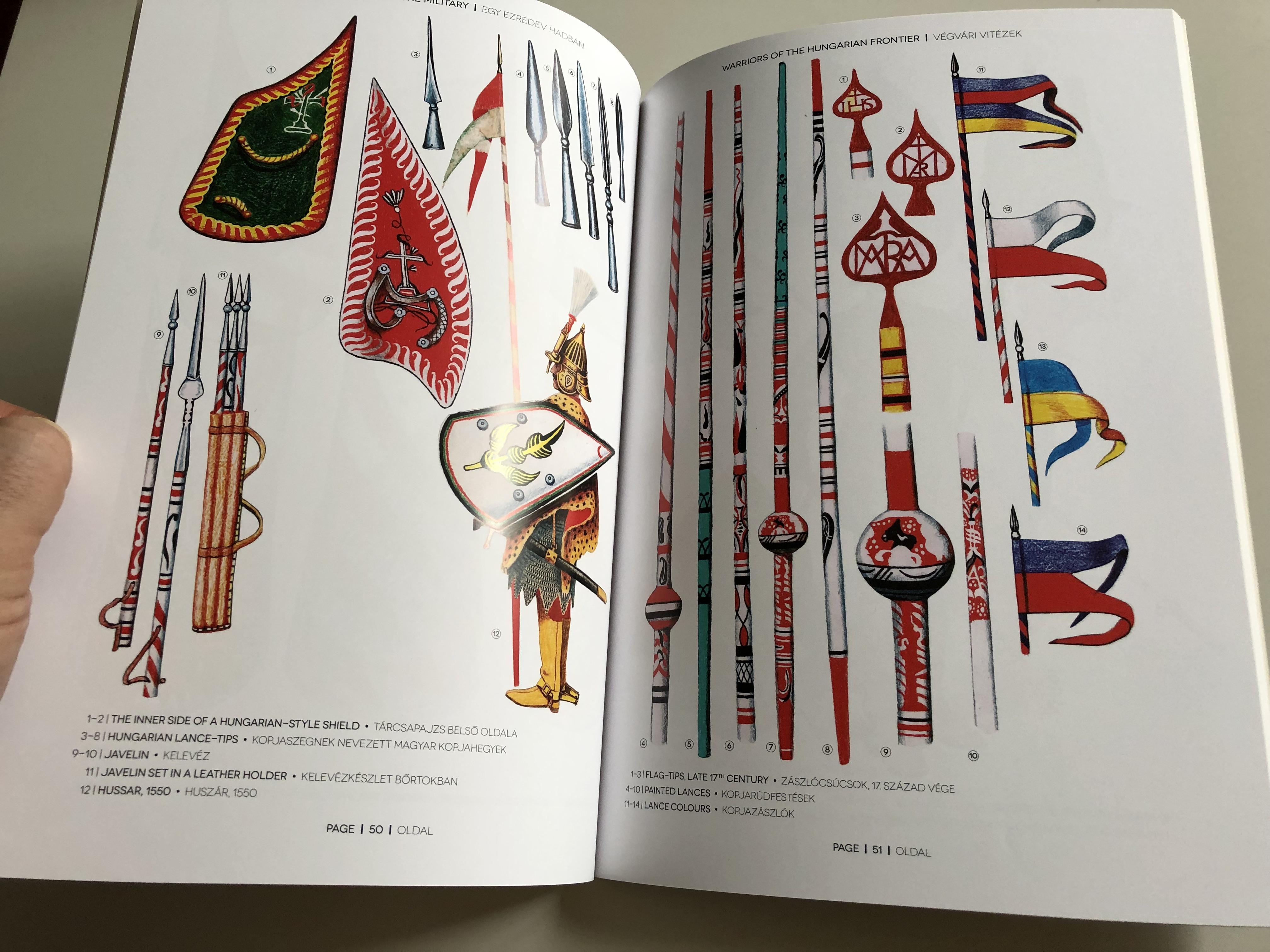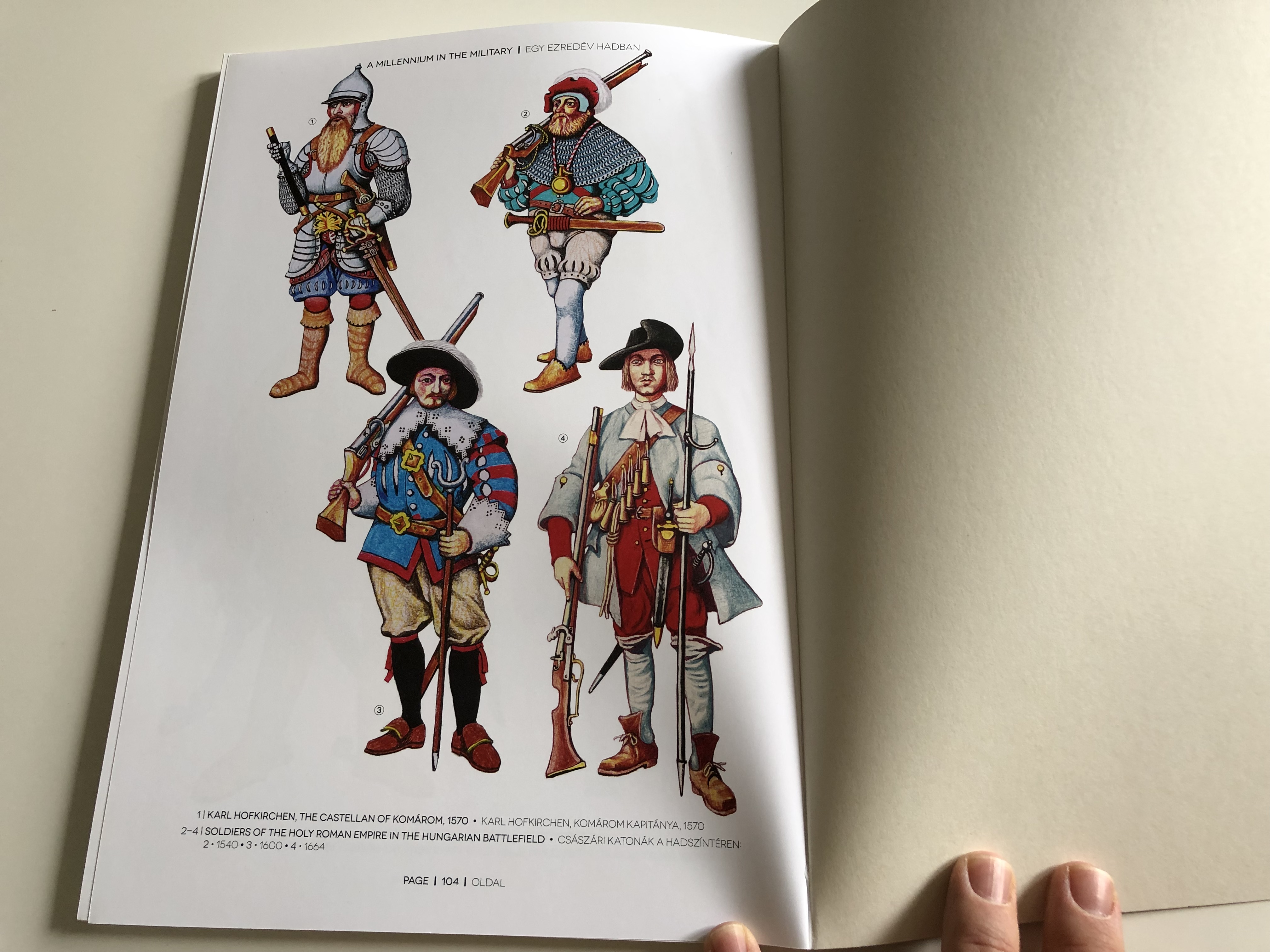Description
Warriors of the Hungarian Frontier 1526-1686 by Győző Somogyi / Végvári vitézek 1526-1686 / A Millennium in The Military - Egy Ezredév Hadban / Paperback 2014 / HM Zrínyi
PAPERBACK 2017
ISBN: 9789633275573 / 978-9633275573
ISBN-10: 9633275571
PAGES: 104
PUBLISHER: HM Zrínyi
LANGUAGE: HUNGARIAN - ENGLISH BILINGUAL
About The Author:
Historian and graphic artist Győző Somogyi (1942) has spent decades researching Hungarian military history and painting accurate illustrations. He is an experimental archaeologist and an active hussar re-enactor so he has personally tested many of the clothing and equipment presented in the series. More than a dozen of his full color albums have already been published in Hungarian and German.
Somogyi Győző (1942) történész, grafikus. Több évtizede gyűjti és rajzolja a magyar hadtörténelem tárgyi emlékeit. Mint hagyományőrző huszár a ruhákat, és a fegyvereket a gyakorlatban is kipróbáló kísérleti régészet művelője. Eddig több mint egy tucat színes albuma jelent meg magyar és más nyelven.
English Summary:
In 1526 the Hungarian armies were defeated in the battle of Mohacs by the Ottomans. King Louis II drowned fleeing the battlefield and the country got linked to the Holy Roman Empire through the Habsburg monarchs. In 1541, Emperor Suleiman I. seized Buda and annexed the central part of Hungary to the Ottoman Empire while in the eastern part of the country he established the Principality of Transylvania, which was dependent on him. Along the frontier between the constantly expanding Ottoman-held lands and the Kingdom of Hungary the next 150 years saw continuous warfare, consisting of sieges and devastating raids, interrupted with several Ottoman attempts to seize Vienna and with Hungarian retaliation. The fight on the frontier was over when in 1686 a pan-European Christian counteroffensive started resulting in the liberation of Hungary by the end of the 17th century. Our book presents the Hungarian and Ottoman military attire and weaponry of the age of frontier wars. The attire and warfare of the two warring empires mutually influenced each other.
This was the period of time that shaped the colorful eastern-style Hungarian military attire of nobility, so different from the western fashion, and the development trend of hussar uniform and armament which entered world fashion in the following eras.
Hungarian Summary:
A magyar haderő 1526-ban a mohácsi csatában sorsdöntő vereséget szenvedett az oszmánoktól. II. Lajos király elesett és az ország Habsburg-házi királyai révén a Német-római császársághoz kötődött. 1541-ben Szulejmán szultán elfoglalta Budát és az ország közepét az Oszmán Birodalomhoz csatolta, keleti részén pedig létrehozta a tőle függő Erdélyi Fejedelemséget. Az egyre terjeszkedő oszmán hódoltság és a Magyar Királyság határvonalán 150 éven át folyamatos várostromokból és pusztíró portyákból álló háború folyt, megszakítva több, Bécs elfoglalását célzó szultáni hadjárattal és magyar visszacsapással. A végvári harcoknak az 1686-ban megindult, európai összefogású keresztény ellentámadás vetett véget, amely a századvégére az ország visszafoglalásához vezetett.
Könyvünk a végvári harcok korának magyar és török hadviseletét és fegyverzetét mutatja be. Az ellenfelek viselete és harcmodora kölcsönösen hatott egymásra.















































